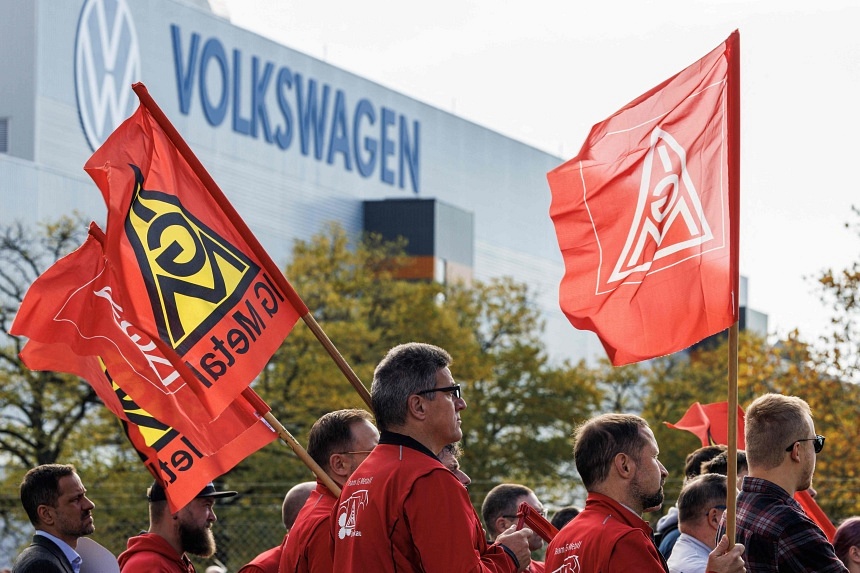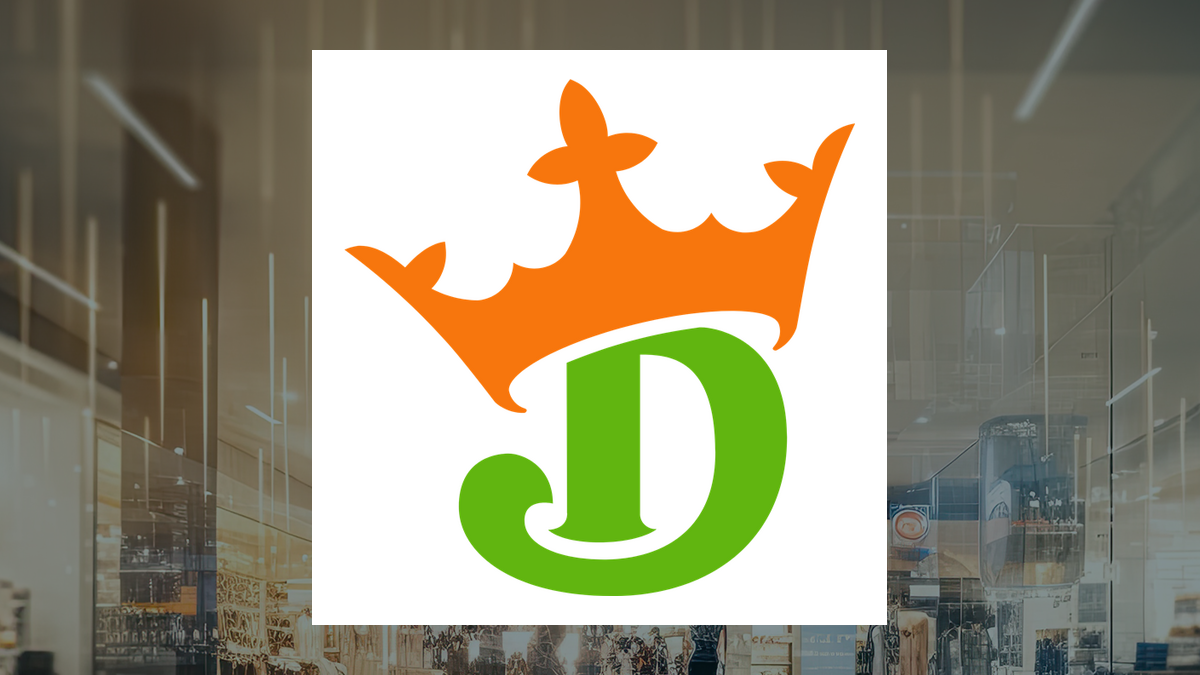
BERLIN – Volkswagen plans to close at least three factories in Germany, eliminate thousands of jobs and slash wages for tens of thousands of German workers as Europe’s biggest automaker tries to halt its tailspin. The proposals to fix the struggling VW brand represent unprecedented cuts and underscore the extent of the crisis at Volkswagen. The German manufacturer has never closed a factory in its home country and a plan to reduce salaries by 10 per cent could affect some 140,000 workers there.
Following weeks of tensions after Volkswagen cancelled a job-guarantee agreement this summer, some 25,000 workers rallied at the company’s headquarters in Wolfsburg on Oct 28. Daniela Cavallo, the head of Volkswagen’s powerful works council, announced the carmaker’s proposal at the assembly to try and galvanise resistance. Negotiations have been ongoing for weeks, but the severity of the planned cuts being sought wasn’t previously clear.
VW’s employees are worried that the cuts are just the beginning of plans to downsize the carmaker’s operations in Germany, which is struggling with relatively high energy and labour costs. The moves would be another blow for Europe’s largest economy, which is expected to contract in 2024 for the second straight year. “This is starvation, a weakening in installments,” Ms Cavallo said.
VW’s plans threaten “tens of thousands” of jobs in Germany. The company drifted into crisis after bungling a transition to electric vehicles. A weak lineup hampered sales in China, where rivals such as BYD are gaining market share.
On top of that, car sales in Europe are around a fifth below their pre-pandemic peak, and VW’s deep restructuring signals what might be in store for other peers in the region. There has been a litany of profit warnings from European automakers in recent weeks. Mercedes-Benz Group is struggling with sagging China sales, BMW has been tripped up by an expensive recall, and Stellantis is getting hit by poor performance in the United States.
For Volkswagen, the Oct 28 rally kicks off what could be a contentious week. The company is expected to post declining sales and profit when it reports third-quarter results on Oct 30. Chief executive officer Oliver Blume has pointed to high costs at the VW brand, but employee representatives counter that workers are being made to pay for boardroom mistakes.
The cutback plans are set to intensify anxiety in Germany, where the struggling economy has fueled a right-wing political shift and stoked anti-immigrant sentiment. Budget austerity and the war in Ukraine has added to voter concerns as national elections loom next September. Volkswagen traditionally has close ties to workers, which control half of the supervisory board seats.
That representation, alongside a large stake owned by its home state of Lower Saxony, meant VW’s German operations were largely insulated from past restructuring efforts. The savings include freezing wages next year and in 2026,Ms Cavallo said, and abolishing one-off payments for workers that have stayed with the automaker for 25 and 35 years. She added that Porsche – also led by Mr Blume – terminated its production relationship and future model planning with VW’s factory in Osnabrück in Lower Saxony.
Volkswagen declined to comment on the exact nature of the cuts, saying only that the situation is “serious” and that both sides have a responsibility to safeguard the company’s future. “We are not productive enough at our German locations,” VW brand CEO Thomas Schäfer said, adding that factory costs are 25 per cent to 50 per cent above the company’s plans. Volkswagen shares, which have fallen by 19 per cent this year, dropped 0.
5 per cent in Frankfurt on Oct 28. The German automaker, which issued its second profit warning in three months in late September, is in a difficult period. While its premium brands including Audi and Porsche have been the carmaker’s biggest source of profit in recent years, they’re now struggling.
Porsche on Oct 25 said it’s weighing cost cuts and reviewing its model lineup after a demand slump in China hit its profits. Negotiations between management and labour have so far produced no results. A grace period will run out next month.
After that, warning strikes at VW sites in Germany would be possible as soon as Dec 1. BLOOMBERG.














